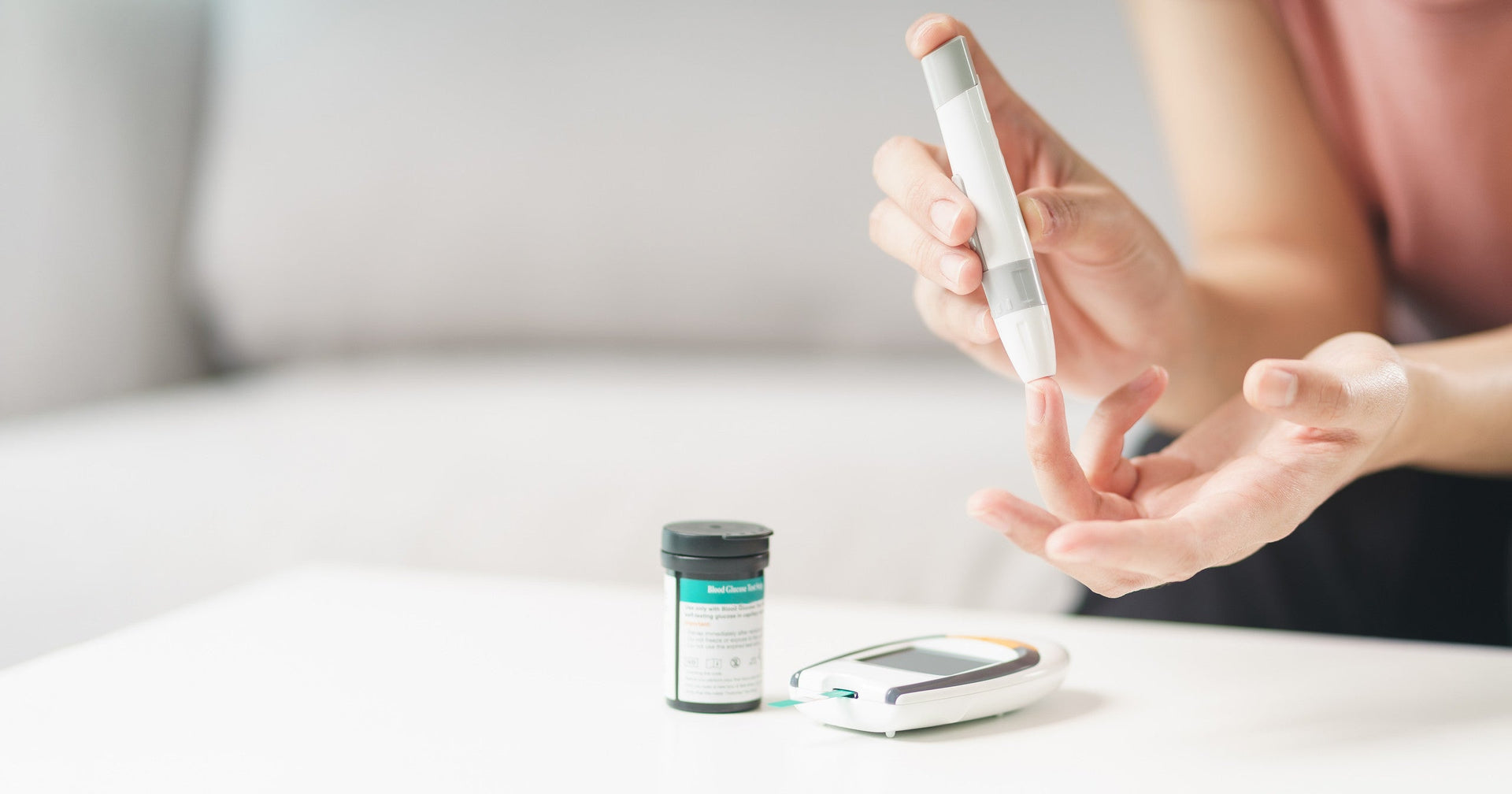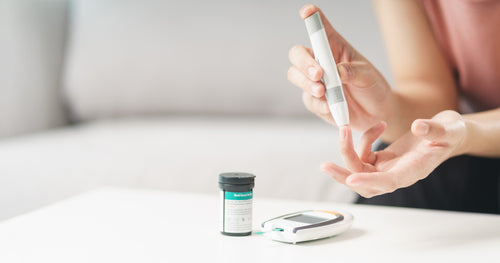
Blood sugar levels, also known as glucose levels, refer to the amount of sugar present in our bloodstream. Glucose is our body's main source of energy. It comes primarily from the foods we eat (especially carbohydrates). Our bodies rely on a delicate balance of blood sugar levels to function properly and keep us feeling happy and healthy. This is a topic that's important for everyone, whether we're living with blood sugar related health concerns or are simply looking to maintain overall wellness.
Maintaining balanced blood sugar levels is essential because it ensures that our organs, tissues, and cells receive the right amount of fuel they need to work efficiently. It also helps regulate our mood, energy levels, and even weight management. When our blood sugar levels become too high or too low, we may be at risk of various health concerns.
High or Low Blood Sugar
High blood sugar, or hyperglycemia, can damage blood vessels, nerves, and organs. It can also increase the risk of heart disease, stroke, kidney disease, vision problems, and nerve issues.
Damage due to glycation, a spontaneous reaction of sugars with proteins, DNA, and lipids that can lead to the formation of advanced glycation end products (AGEs). The glycation process leads to a loss of protein function and impaired elasticity of tissues such as blood vessels, skin, and tendons. The glycation reaction is highly accelerated in the presence of hyperglycemia and tissue oxidative stress. Glycation is involved in the initiation of diabetic complications and acceleration of aging. Because it is difficult to remove glycated products from the human body, the glycation process helps to explain that the accumulation of metabolic waste promotes aging.
Low blood sugar, or hypoglycemia, can cause symptoms like dizziness, confusion, weakness, and even loss of consciousness. Severe hypoglycemia can be life-threatening if not treated promptly.
Maintaining healthy blood sugar levels is crucial for our well-being. Lifestyle factors impact our blood sugar levels, such as: diet, physical activity, stress and illness, and medications.
Items That Can Increase Blood Sugar Levels
- Alcohol
- Antibiotics
- Antidepressants
- Beta-2 stimulators
- Caffeine
- Corticosteroids
- Dilantin
- Nicotine
- Estrogens
- Heart and blood pressure medications
- Niacin or nicotinic acid
- Protease inhibitors
- Thyroid hormones
Items That Can Lower Blood Sugar Levels
- Antibiotics
- Alcohol
- Aspirin and other salicylates in larger doses
- Heart and blood pressure medications
- Quinine
- Tylenol
How to Maintain Healthy Blood Sugar Levels
- Choose high-quality carbs: Opt for whole grains, fruits, vegetables, and legumes instead of refined sugars and processed foods.
- Eat balanced meals: Combine carbohydrates with protein and healthy fats to slow down the absorption of glucose into our bloodstream.
- Eat regularly: Aim for consistent mealtimes and avoid skipping meals or overeating.
- Stay active: Engage in regular physical activity to help your body use insulin more effectively.
- Manage stress: Incorporate relaxation techniques like meditation, yoga, or deep breathing exercises to reduce stress-related blood sugar fluctuations.
- Get sufficient sleep: Poor sleep can affect hormones that regulate glucose metabolism, so aim for 7-9 hours per night.
We should monitor blood sugar levels regularly to understand how certain factors impact our body's glucose balance. With this information, we can adjust our diet and lifestyle as needed. For many people occasional check-ups at the doctor's office should suffice. However, if you suspect you are not maintaining healthy blood sugar levels testing at home may be able to help you learn if you have chronic imbalances of blood sugar.
There is an at-home test available to measure your hemoglobin A1c. The HbA1c Test measures the amount of sugar (glucose) in your blood. When glucose builds up in the blood, it binds to a protein called hemoglobin. Testing our hemoglobin A1c level is a great way to gain insight into our body’s ability to metabolize glucose. The Hemoglobin A1c (HbA1c) test measures the percentage of A1c hemoglobin proteins that have glucose attached. The higher our blood glucose is on average, the more glucose there is attached to the hemoglobin A1c protein.
Our HbA1c level correlates to and reflects our average blood glucose over the past 3 months. A healthy HbA1c is below 5.7% and above 5.7% indicates chronic elevated glucose and warrants a discussion with a healthcare provider.
Managing blood sugar levels is an ongoing process, but with the right support and knowledge, we can find our sweet spot and maintain optimal health.






